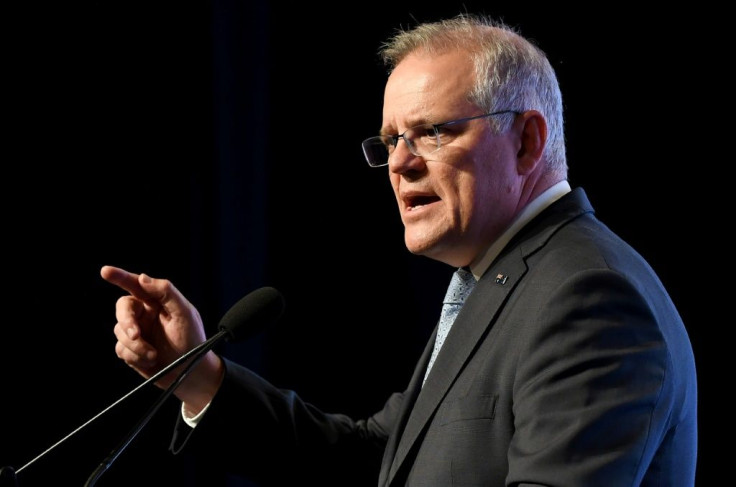Australia PM Presses G7 On Trade Reform To Rein In China
G7 nations must overhaul global trade rules to stop powerful countries using economic coercion, Australian Prime Minister Scott Morrison said Wednesday ahead of a meeting of the group's leaders in Britain.
As Australia's shadow trade war with its largest trading partner China shows few signs of abating, Morrison told the Perth USAsia Centre that the global rules-based order is "under serious strain".
"The most practical way to address economic coercion is the restoration of the global trading body's binding dispute settlement system," he said.
"Where there are no consequences for coercive behaviour, there is little incentive for restraint."
Beijing has imposed harsh economic sanctions on a range of Australian products in recent months, including tariffs or disruption across several agricultural sectors, coal, wine and tourism.
Many in Canberra believe the measures are punishment for pushing back against Beijing's influence operations in Australia, rejecting Chinese investment in sensitive areas and publicly calling for an investigation into the origins of the coronavirus.

Morrison's comments came ahead of the G7 Summit in Cornwall, southern England, where Australia has been invited as a guest nation to participate in the "G7 Plus" talks.
He plans to use the event as an opportunity to work with leading nations to "modernise" the World Trade Organization rulebook, ahead of its ministerial conference in November.
Australia has launched WTO action over Chinese tariffs on barley imports, but the case could take years to resolve.
With climate change expected to rank high on the agenda at the G7's first in-person meeting for nearly two years, Morrison also appears set to resist international pressure to commit Australia to a target of becoming carbon-neutral by 2050.
Australia will focus on "how we succeed and prosper" in a global economy moving toward net-zero, without putting local jobs and industries at risk, he said Wednesday.
"It's about how Australia's best able to advance our interests as part of a world that is dealing with climate change."
Australia is one of the world's largest producers of coal and natural gas, but has also suffered extreme droughts, floods and bushfires in recent years that scientists say are being worsened by climate change.
© Copyright AFP {{Year}}. All rights reserved.





















